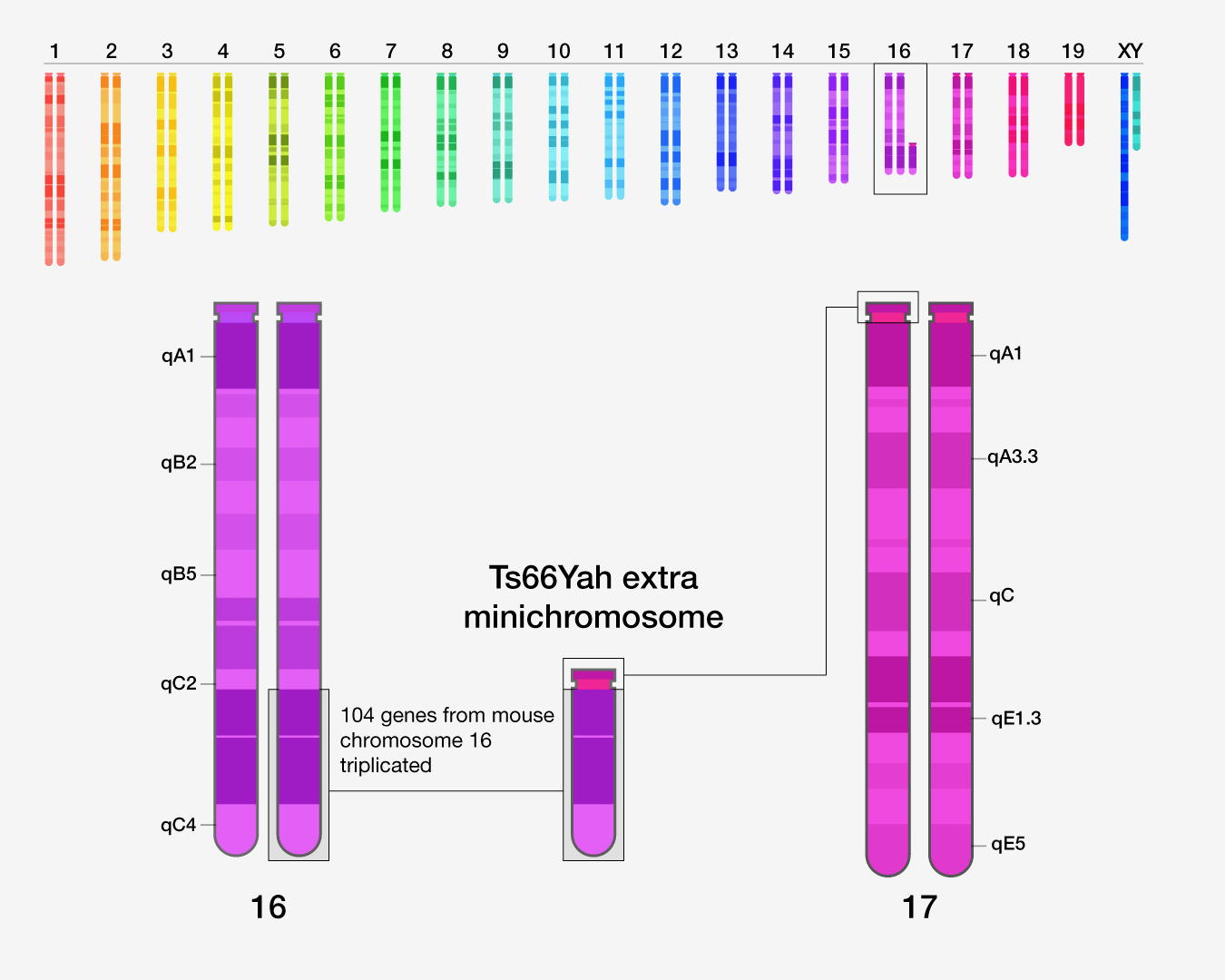News Launch
Tuesday, March 14, 2023

New mouse design could tell likely therapeutic alternatives for Down syndrome.
National Institutes of Health researchers when compared a new genetic animal model of Down syndrome to the typical product and located the up-to-date version to be a lot more identical to the variations found in human beings. The new mouse design exhibits milder cognitive attributes in contrast to a previously analyzed Down syndrome mouse design. The results of this study, posted in Biological Psychiatry, could assistance scientists acquire a lot more specific treatment plans to enhance understanding and memory in men and women with Down syndrome.
Experts found that the new mouse model, known as Ts66Yah, experienced memory troubles and habits qualities, but the signs or symptoms have been not as severe as observed with the past mouse product. Researchers generally use diverse strains of mice as animal products to examine human diseases simply because most genes in humans have comparable counterparts in mice.
“A mouse model that a lot more precisely captures the genetics of Down syndrome has crucial implications for human clinical trials that intention to improve cognition,” reported Diana W. Bianchi, M.D., director of the Eunice Kennedy Shriver Nationwide Institute of Youngster Health and Human Enhancement, senior investigator in the National Human Genome Investigation Institute (NHGRI) Heart for Precision Health and fitness Research and senior author of the research.
About 6,000 newborns are diagnosed with Down syndrome each and every calendar year in the United States. In most instances, these infants have a 3rd duplicate of chromosome 21. An added chromosome 21 provides an extra copy of about 200 protein-coding genes to that person’s genome, which leads to complications with mastering, speech and motor competencies.
A earlier mouse design, recognised as Ts65Dn, has been regarded the normal for Down syndrome analysis, utilized in preclinical research for nearly 30 years. Alongside with some productive cognitive treatments, these kinds of as a modern hormone-centered cognitive cure, some other therapies that were being productive in the mouse design ended up not as productive in individuals.
Importantly, the preceding mouse model’s genome includes 45 excess genes that are irrelevant to human Down syndrome, a byproduct of how the model was produced. Individuals and mice have incredibly related genomes, but the chromosomes that make up people genomes do not specifically align throughout those people two species. For example, many of the genes observed on human chromosome 21 are identified on mouse chromosomes 16 and 17. The previous mouse model has an further region of mouse chromosome 17 that incorporates 45 more genes not uncovered on human chromosome 21. How these 45 further genes impact the mind and habits of the previous Ts65Dn mice has not been investigated till now.
To build an improved mouse design of Down syndrome, scientists at the University of Strasbourg, France, eliminated these additional 45 genes applying CRISPR gene-enhancing technological know-how. Dr. Bianchi’s group then in comparison the two mouse models and located that the extra 45 genes in the preceding mouse design were being influencing brain improvement and contributed to additional critical difficulties with motor skills, interaction and memory.
“There are significant effects of these extra genes on mouse brain development and behavior,” stated Faycal Guedj, Ph.D., employees scientist in NHGRI’s Middle for Precision Wellbeing Research and 1st author of the review. “What was previously assumed as the ideal mouse model of Down syndrome has qualities derived from genes that are not related to human chromosome 21.”
Scientists at the Center for Precision Well being Research goal to use reducing-edge genomics resources to foster upcoming-era healthcare. With this new and enhanced mouse product, Dr. Bianchi’s group hopes to build a lot more specific treatment plans for improving upon cognition with the aim of impartial residing abilities in persons with Down syndrome.
“The possibility of treating intellectual disabilities in the context of Down syndrome goes to the core of shifting conceptions about the nature of incapacity, its professional medical and medical factors, and what we, typically pejoratively, contemplate ‘normal’ and ‘desirable’ in the context of professional medical care and in modern society,” underscores Christopher R. Donohue, Ph.D., NHGRI senior historian. “As cognitive treatment options dependent on genetic types turn out to be far more feasible in the long term, scientists, in discussion with incapacity ethicists, individuals with Down syndrome and other healthcare professionals, must carefully weigh possible benefits vs . downsides, like contributing to ableism in drugs, and other forms of stigma.”
The Nationwide Human Genome Study Institute (NHGRI) is just one of the 27 institutes and facilities at the NIH, an agency of the Department of Wellbeing and Human Expert services. The NHGRI Division of Intramural Investigate develops and implements engineering to realize, diagnose and handle genomic and genetic diseases. Extra information about NHGRI can be identified at: https://www.genome.gov.
About the Countrywide Institutes of Well being (NIH):
NIH, the nation’s clinical study agency, includes 27 Institutes and Facilities and is a part of the U.S. Office of Wellness and Human Companies. NIH is the major federal agency conducting and supporting primary, clinical, and translational professional medical investigation, and is investigating the brings about, remedies, and cures for both of those popular and uncommon conditions. For a lot more data about NIH and its packages, pay a visit to www.nih.gov.
NIH…Turning Discovery Into Wellness®





More Stories
White House plans to nominate cancer center chief to lead NIH
What Happens to the Brain in Alzheimer’s Disease?
Biden Plans to Pick Monica Bertagnolli to Lead National Institutes of Health